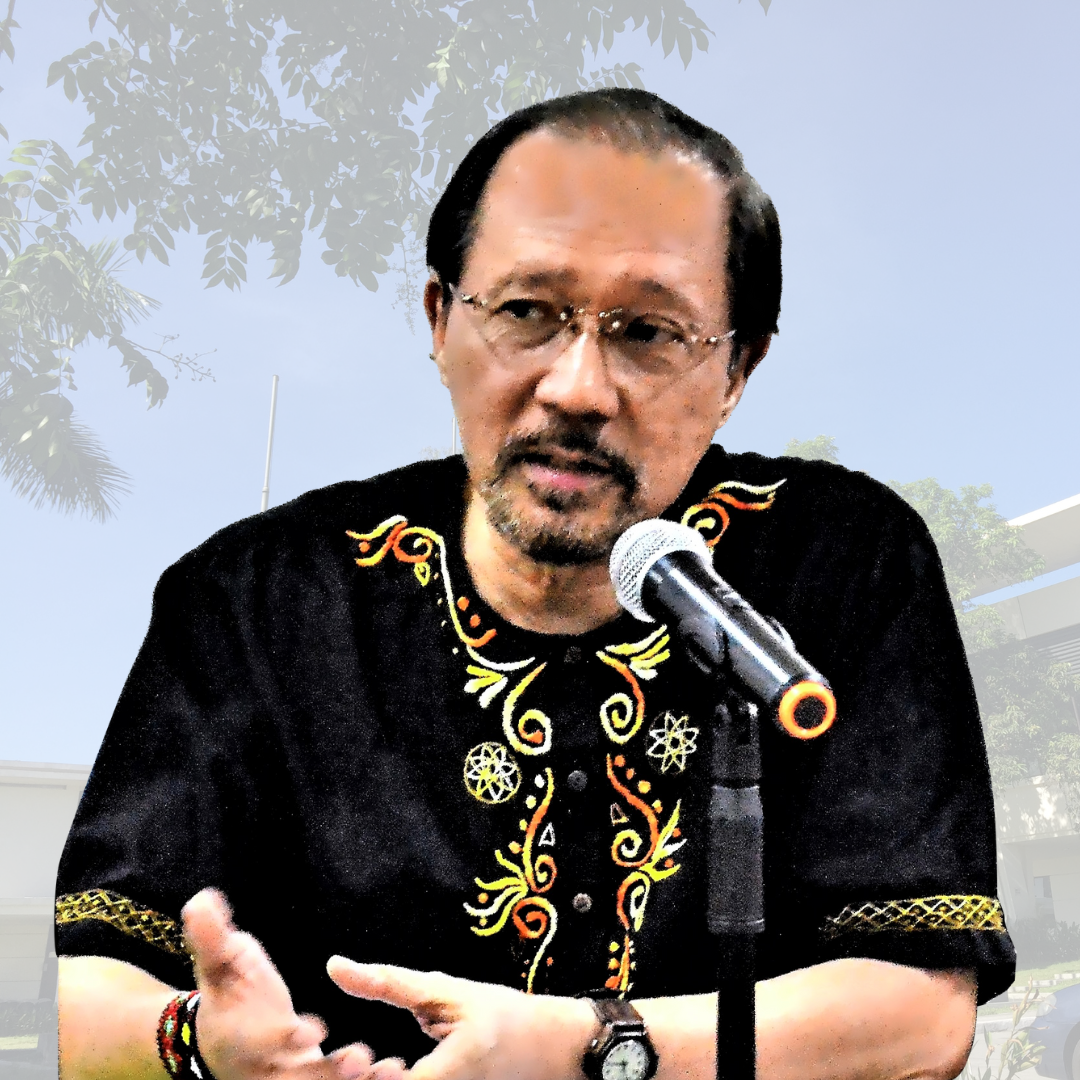
Until his retirement in October 2015, Dr. Eduardo Climaco Tadem was a faculty member for 17 out of the 27 years he spent with the University of the Philippines. Dr. Tadem taught Southeast Asian and Philippine studies and performed various tasks toward strengthening the Center’s academic programs and raising its regional and international profile. For almost three decades, Dr. Tadem has contributed to enrichment of the Center and University’s institutional and pedagogical thrusts.
Since 1998, when he transferred from UP Manila where he taught Development Studies, Dr. Tadem has given his time and energy to helping strengthen the Center’s programs. After earning his Ph.D. in Southeast Asian Studies at the National University of Singapore in 2006, he became part of the faculty committee that initiated major revisions to the Asian Studies curriculum in 2006-2007 and helped develop the orientation and content of AC core courses, notably, Theories and Perspectives in Area Studies (AS 210) and in Philippine Studies (PS 202).
Among his other significant contributions to the Center is the revival of the Asian Studies: Journal of Critical Perspectives on Asia. When he was appointed editor-in-chief in 2012, the journal had been dormant for several years—and had a growing backlog of issues. As editor, he oversaw and spurred the revitalization of the journal: By the time he stepped down as editor in chief in 2016, the journal had already gained accreditation from the Commission on Higher Education, was regularly publishing two issues a year, and had a website from which all journal issues and articles can be downloaded for free in the spirit of open access. Most importantly, the journal regained its status as one of the university’s platforms for sharing research on Asia and the Philippines.
Professor Tadem has also raised the Asian Center’s regional profile through his tireless networking efforts. He played a critical role in the founding of the Consortium for Southeast Asian Studies (SEASIA), with then ten leading Southeast Asian studies academic institutes at the helm, in 2013 and was a governing board member until the Consortium’s inaugural conference at Kyoto University in 2015. The establishment of SEASIA is a seminal event in the history of Southeast Asian Studies, for the network seeks to help correct the influence of Orientalism on area studies, which has been, until the late 20th century, dominated by American and European academics.
A prolific writer and ardent scholar, Dr. Tadem has also done extensive studies on political economy, foreign aid, social movements, and agrarian issues in Philippines and Southeast Asia. His long, outstanding publication record exemplifies the depth, quality, and scope of his research and has contributed to providing knowledge on critical issues relating to Philippine and Southeast Asian development and governance. In particular, Dr. Tadem has occupied a niche in agrarian studies due to his life-long work and commitment to helping draw attention to the plight of the peasantry and problems of rural underdevelopment. Fittingly enough, his latest work on the peasantry is the book on the life history of Ka Bart Pasion, who was among the last of the generation of Hukbalahap commanders who saw action in WW 2 and had since been a leader in the peasant movement. Ka Bart passed away in 2016, but his ideas and experiences will now be part of our people’s collective memory of struggle, thanks in part to Dr. Tadem’s work.
This same commitment to draw attention to development dynamics at the margins also informs his scholarship on Mindanao. Dr. Tadem, who hails from Zamboanga City, was among the first scholars to shed light on the political economy of Mindanao. As per WorldCat records, his early works, Mindanao report: a preliminary study on the economic origins of social unrests, first published in 1980, has had a second edition and is held in 14 member libraries worldwide while Indonesia's interregnum: a tortuous transition to democratic development that first saw print in 2000 has had three editions and found in 26 member libraries worldwide. Since then, he has applied this same critical eye and dedication to studying development processes and dynamics in other places in the country and beyond.
